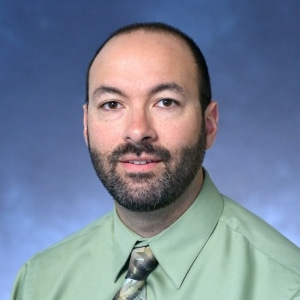Tell us a bit about yourself – what was your PhD about and where did you study?
In college I became interested in neuroscience as a way of understanding both human and animal behavior. I volunteered in a neuroscience lab, where I learned the basics of bench research while studying synaptic proteins. Upon graduation, I was accepted to the University of Michigan’s MD-PhD program. For my thesis work, I studied neuroimmune processes that influence sleep behavior, and my work demonstrated that the cytokine interleukin-6 enables a reorganization of sleep patterns in response to various homeostatic challenges, such as sleep deprivation and bacterial infections.
What do you do now? What did you decide to do next after gaining your PhD?
During my time in the Neuroscience Graduate Program, I became interested in addiction as a way to understand the basic motivational systems that drive behavior. The excellence of our addiction researchers convinced me to stay at Michigan for my psychiatry residency program at the University of Michigan, and during my clinical training I was able to further hone my behavioral neuroscience skills with the help of some great mentors in the Biopsychology Department. Now, for one or two days per week I provide medication management and other clinical care to patients through the University of Michigan Addiction Treatment Services (UMATS). The rest of my time is devoled to basic research, mainly using animal models to identify and manipulate specific neural circuits that show individual differences relevant to addiction and several other psychiatric disorders.
Has having a PhD helped in developing your career? If yes, what has been the biggest impact? If no, why do you think that is?
It would be almost impossible to do the kind of research I do without a PhD. My studies require a substantial amount of infrastructure and cost a lot of money to perform. Funding agencies are extremely unlikely to provide that level of resources to someone who hasn’t completed a rigorous training program in scientific investigation. Just learning the techniques involved requires years of training, let alone learJust ning how to design, analyze, and interpret the studies. While it is theoretically possible to learn all that “on the side” I don’t know where you would find the time or the mentorship to do it outside of a formal curriculum, or how you would convince a grant reviewer that you really know what you need to know in order to head up a major scientific program.
What’s one piece of advice that you’d offer prospective students considering a PhD?
For me, the most important thing was understanding why I wanted a PhD and how that degree fit into my longer-term goals. Trying to get a PhD in order to gain respect, or fame, or money, or affection never works. It’s a means to a much more specific end, namely, it opens the door to certain types of jobs. If the job you want to do requires a PhD, then get one. If it doesn’t, don’t. It takes so much time and frustration to complete a PhD that I wouldn’t advise anyone to do it if they don’t have to.
And what one thing would you suggest that new PhD graduates should do next?
Just move on to the next stage in your career. If you need more training to get the position you want, e.g. you need to do a postdoc, then contact people right away to get an advantageous position that will set you up for the job you want. If you can get the position now, go for it! These skills generally do not improve with age, so strike while you are still on the cutting edge.
Lastly, what’s your favourite memory from your time as a PhD student?
Definitely the people. Especially on a career path as long as the one I took, it’s important not to wait to form relationships or start your life. Your life has already started; you’re living it right now! So enjoy it, even when you’re working hard.
Want to learn more about Jonathan?
Check out his university profile using the link below:

